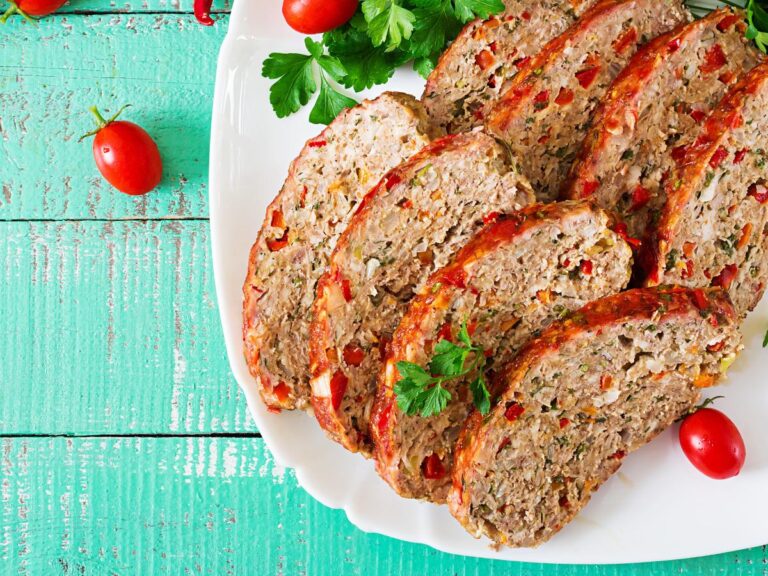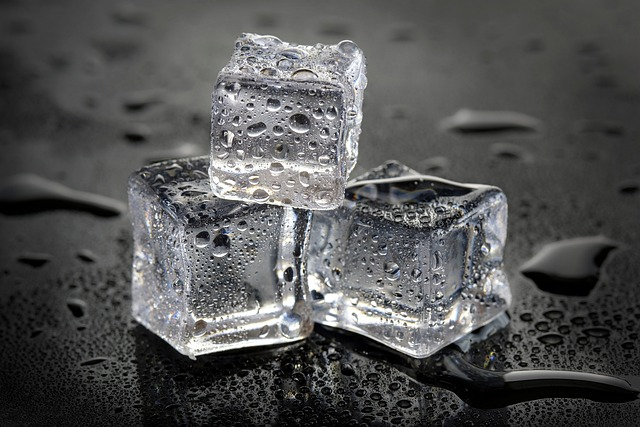What Drinking Chai Tea Can Do For Your Stomach
Grab your favorite mug and let’s uncover the mystery behind the question: Does chai tea make you poop? It’s a topic that’s not only fascinating but also quite relevant to anyone who’s ever enjoyed this aromatic beverage. And because I’m all about practical solutions (with a pinch of fun), I’ll also share a quick and easy chai tea recipe that might be your new go-to for when your digestive system needs a little encouragement.

The age-old question that’s been brewing in the minds of chai tea latte enthusiasts and digestive detectives alike: Does chai tea make you poop?
Before you chuckle or dismiss the thought, consider this – we’re about to pour over the truth behind the comforting cup of chai and its potential to keep things moving smoothly in your digestive tract.
Growing up in a big, food-loving Sicilian family, where meals were hearty, and spices were never spared, I was introduced to herbal teas and their digestive benefits early on.
With its aromatic symphony of spices, Chai always held a special place in our kitchen. I remember my grandmother brewing a pot of chai with the same reverence she reserved for her Sunday sauce.
It’s a remedy, a ritual, and a moment of togetherness. And, yes, it was also our go-to fix for those days when we felt a little… let’s say, backed up.
Chai has remained a staple for its taste and gentle nudge on our digestive systems, and it is known to relieve constipation. Through trial, taste, and some science, I’ve brewed countless cups and witnessed firsthand the “moving” experience chai can offer.
Table of Contents
Does Chai Tea Make You Poop?

This isn’t just about my anecdotal musings, though. There’s science behind how these spices interact with our bodies, and I’ve sifted through it to bring you the best, most reliable information.
Let’s look into what makes this beverage a potential ally for your gut, backed by science, personal insights, and a recipe that might make you the most regular you’ve ever been.
What is Chai Tea?

Originating from India, this flavorful beverage has become a global favorite, known for its comforting warmth and rich blend of spices.
At its core, chai tea combines the robustness of black tea with a symphony of spices—each bringing its unique flavor and health benefits to the cup.
The most common spices you’ll find dancing in your chai include:
Ginger: This root is a powerhouse known for its ability to soothe stomachs and kickstart digestion.
Cardamom: Sweet and aromatic, cardamom is not just for flavor; it’s also celebrated for its digestive-aiding properties.
Cinnamon: Beyond its sweet and warm taste, cinnamon can help manage blood sugar levels and reduce bloating.
Cloves and Black Pepper: These spices add a spicy kick and are known for their anti-inflammatory and digestive-boosting effects.
When these ingredients come together, they create more than just a tasty beverage; they form a potent concoction that can aid digestion and promote overall wellness.
The Digestive Benefits of Chai Tea

Now, let’s get to the heart of the matter: how does this delightful beverage affect our digestive health? The spices in chai tea aren’t just there for their taste; they come with a basket full of benefits for your gut.
Spices and Digestion
Each spice in chai tea brings something special to the table:
Ginger: A hero for the stomach, ginger is known for its ability to ease indigestion and nausea. It stimulates saliva, bile, and gastric enzymes, which help break down food and reduce intestinal cramping. It’s like a gentle back pat telling your digestive system, “You’ve got this.”
Cinnamon: This spice is like a warm hug for your intestines. It can help reduce gas and bloating, making you feel more comfortable after meals. Plus, its natural sweetness adds a guilt-free flavor boost.
Cardamom: With its sweet and soothing aroma, cardamom is a bit of a digestive all-rounder. It helps with everything from reducing gas and bloating to easing acidity. Think of it as the Swiss Army knife in your spice rack.
Cloves: Cloves pack a punch when it comes to digestion. They’re known for their ability to increase gastric secretions, helping speed digestion and reduce symptoms like bloating and gas. It’s like a little internal engine that could.
Black Pepper: Last but not least, black pepper isn’t just there to add a bit of spice. It helps to increase nutrient absorption and improves digestion by stimulating hydrochloric acid in the stomach. The spice says, “Let’s get to work.”
So, Does Chai Tea Make You Poop?

With this powerful combination of spices, chai tea can indeed help support your digestive system. The key here is stimulation.
The spices in chai help stimulate digestive activity, which can lead to more regular bowel movements. It’s like giving your digestive tract a gentle nudge, helping things move along more smoothly.
However, it’s important to note that while chai can benefit digestion, it’s not a one-size-fits-all solution. Everyone’s body reacts differently; for some, the spices might be too stimulating.
For many, a cup of masala chai can be a delightful way to support digestive health and keep things moving.
When to Drink Chai Tea for Digestive Health

Knowing when to enjoy your cup of chai can be just as crucial as knowing its benefits. Timing is everything, especially when leveraging chai tea for its digestive perks. Here’s how to make the most of your chai teas for optimal digestive health:
Best Times to Sip on Chai

After Meals: Enjoying a cup of chai tea after a meal can be a fantastic way to aid digestion. The spices help stimulate digestive enzymes, contributing to a more efficient breakdown of food and nutrients.
Morning Ritual: Starting your day with a cup of chai can help wake up your digestive system gently. It’s like a morning stretch but for your intestines, preparing them for the day ahead.
Feeling Bloated?: If you’re experiencing bloating or digestive discomfort, a warm chai cup might relieve you. The anti-inflammatory and digestive-stimulating properties of the spices can help ease your discomfort.
Moderation Of Black Tea Is Key

While consuming black tea can be beneficial, consuming it in moderation is essential. The caffeine content in black tea, combined with the powerful spices, can be too stimulating for some, especially if consumed in large amounts.
Listening to your body and adjusting your intake is vital to avoid potential side effects like jitteriness or an upset stomach.
Individual Sensitivities

It’s also important to be mindful of individual sensitivities to spices. Not everyone’s digestive system will react the same way to chai tea.
If you’re new to chai or have a sensitive stomach, start with a weaker brew and see how your body responds before making it a regular part of your routine.
Finding Your Balance

Integrating chai tea into your daily routine can be a delightful and healthful practice, particularly for your digestive health. By paying attention to timing and moderation, you can enjoy the benefits of making chai tea without overdoing it. Remember, the goal is to support your digestive health, not to overwhelm it.
A Quick and Easy Chai Tea Recipe for Constipation Relief

If you’re intrigued by the potential digestive benefits of chai tea and are looking for a way to incorporate it into your routine, especially to aid with constipation relief and a healthy bowel movement, here’s a simple and effective recipe.
This recipe shows what makes chai tea so delicious and is tailored to soothe and gently stimulate your digestive system.
Ingredients:
1 cup of water
1 cup of milk (or a dairy-free alternative for those with lactose intolerance)
2 teaspoons of black tea leaves (or a decaffeinated alternative if preferred)
1/4 teaspoon of grated ginger (increase to 1/2 teaspoon if you’re comfortable with a stronger ginger flavor)
2-3 cardamom pods, crushed
1 cinnamon stick (or 1/2 teaspoon of ground cinnamon)
1 clove
A pinch of ground black pepper
Honey or sweetener of choice to taste
Instructions:
Combine Spices and Water: In a small saucepan, add the water along with the grated ginger, crushed cardamom pods, cinnamon stick, clove, and a pinch of black pepper. Bring the mixture to a boil.
Simmer: Reduce the heat and let the spices simmer for about 5-10 minutes. This allows the flavors and beneficial compounds of the spices to infuse into the water.
Add Tea and Milk: Add the black tea leaves to the spice-infused water. Then, pour in the milk. Bring the mixture back to a slight boil, then turn off the heat. Be mindful of its boiling point to avoid curdling if you’re using a dairy-free alternative.
Steep: Let the chai sit for about 3-5 minutes, allowing the tea to steep and the flavors to meld together.
Strain and Serve: Strain the chai tea into your favorite mug, removing the spices and tea leaves. Add honey or your preferred sweetener to taste.
Enjoy: Sip the chai tea slowly, letting the warmth and spices comfort you from the inside out.
Serving Suggestions:
For the best results in aiding digestion and relieving constipation, consider drinking this chai tea in the morning to stimulate your digestive system or after meals to aid in digestion.
Drinking this chai tea regularly can help maintain regular bowel movements, but listen to your body and adjust the frequency as needed.
This chai tea recipe combines the digestive power of spices with the comforting ritual of enjoying a warm beverage. It’s a tasty, natural approach to supporting digestive health and relieving constipation.
Making your chai tea at home allows you to adjust the spice levels and ingredients to suit your taste and health needs, making each cup a personalized digestive aid.
Precautions and Considerations

While chai tea can be a delightful and beneficial addition to your dietary routine, especially for its digestive benefits, there are some precautions and considerations to remember.
Not everyone will react to chai tea similarly, and certain health conditions or sensitivities may warrant a more cautious approach.
Key Considerations:
Spice Sensitivity: Individuals with sensitive digestive systems or conditions like Irritable Bowel Syndrome (IBS) may find that the spices in chai tea exacerbate their symptoms. In such cases, it’s advisable to start with a weaker brew or to selectively reduce or omit the more potent spices such as black pepper and cloves.
Caffeine Content: Black tea, the base of traditional chai, contains caffeine. While the amount is typically less than that found in coffee, individuals sensitive to caffeine or those with conditions like anxiety disorders or insomnia should be mindful of their chai tea consumption. Opting for a decaffeinated black tea or consuming chai earlier in the day can mitigate potential issues.
Pregnancy and Breastfeeding: Pregnant and breastfeeding women should exercise caution with chai tea, particularly due to the caffeine content and certain spices. Consulting with a healthcare provider before adding chai tea to your routine during these periods is crucial.
Interactions with Medications: Some spices in chai tea can interact with medications, including blood thinners and drugs affecting blood sugar levels. If you’re on any medication, it’s wise to consult a healthcare professional to ensure chai tea is a safe choice.
Listening to Your Body:
Moderation: Even with no specific health concerns, consuming chai tea in moderation is important. Observing how your body responds to chai tea can help you adjust your intake accordingly to enjoy its benefits without discomfort.
Customization for Tolerance: If you find certain spices in chai tea don’t agree with you, consider customizing your chai blend. Reducing or omitting the offending spice(s) can often allow you to enjoy chai tea without adverse effects.
Conclusion
Embracing the warm, aromatic world of chai tea opens up more than just a pathway to a delightful beverage experience; it offers a journey into understanding how traditional spices can play a role in our digestive health.
As we’ve explored together, the key to reaping the digestive benefits of chai tea lies in its thoughtful consumption.
Whether selecting the right time of day to enjoy a cup or adjusting the spice blend to suit your personal health needs, chai tea offers a versatile and enjoyable means to support digestive wellness.
Preparing and savoring chai can become a mindful ritual that nurtures your body and enriches your daily routine with its rich tapestry of flavors.
FAQ and Additional Information
What are the side effects of chai tea?

Chai tea, while beneficial for many due to its blend of spices and black tea, can have side effects, particularly if consumed in large amounts or by individuals with certain sensitivities or health conditions.
Caffeine Sensitivity: Chai tea contains caffeine, leading to insomnia, nervousness, restlessness, stomach irritation, nausea, increased heart rate, and other symptoms in sensitive individuals.
Gastrointestinal Issues: The spices in chai tea, though beneficial for digestion in many cases, can cause gastrointestinal upset, including heartburn, diarrhea, or stomach cramps in people with sensitive digestive systems or conditions like IBS.
Interference with Medications: Some spices in chai tea may interact with certain medications, affecting their efficacy. For example, the blood-thinning effect of some drugs can be enhanced, leading to complications.
Pregnancy Concerns: Pregnant women are often advised to limit caffeine intake, making it important to monitor chai tea consumption. Additionally, some spices may not be recommended in pregnancy due to their potent effects.
Blood Sugar Control: For individuals with diabetes or blood sugar control issues, the sweeteners added to chai tea can affect blood sugar levels. The spices may also have beneficial and adverse effects on blood sugar regulation.
Is chai tea good for your stomach?
Yes, chai tea can be good for your stomach in moderation. The spices used in chai tea, such as ginger, cardamom, and cinnamon, have digestive benefits that can help soothe the stomach and improve digestion.
Ginger relieves nausea and prevents stomach upset, while cardamom and cinnamon can help with bloating and gas. These spices stimulate the digestive system, aiding digestion and improving gut health and regular bowel movements.
It’s important to note that individuals with certain digestive conditions or sensitivities may need to adjust the spice content to suit their needs.
Consuming chai tea in moderation and paying attention to how your body responds can help you enjoy the benefits while minimizing potential adverse effects.
Does chai tea clean your system?
Chai tea can contribute to a healthy digestive system, which may aid in the body’s natural detoxification processes, but it is not a detoxifier in the strict sense.
The spices in chai tea, such as ginger, cardamom, and cinnamon, support digestion and can help reduce inflammation, potentially aiding the body in eliminating waste more efficiently.
Ginger, for example, is known for its anti-inflammatory and antioxidant properties, which can support the immune system and overall health. However, “cleaning the system” should be cautiously approached, as the body naturally detoxifies through the liver, kidneys, and other organs.
Drinking chai tea can be a beneficial addition to a balanced diet, supporting overall health and well-being. Still, it should not be relied upon as a sole method for detoxification.








One Comment